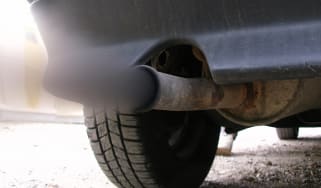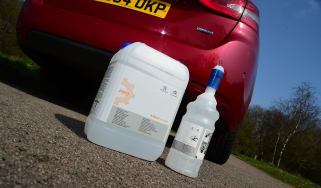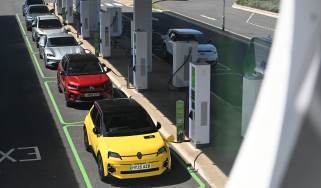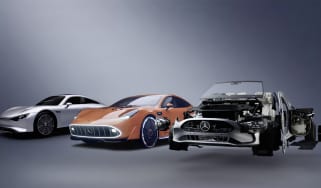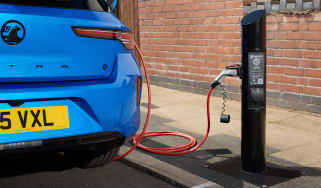“Vehicle-to-grid charging is the secret to electric cars that are incredibly cheap to run”
The electric car is the future whether we like it or not and Andy Palmer believes the secret to mass adoption is getting the charging right
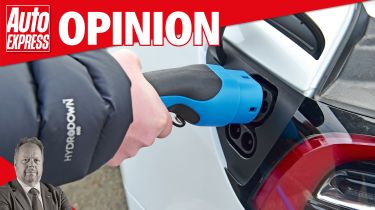
Since around 2002, I’ve dedicated a large chunk of my career to the pursuit of clean energy mobility. Perhaps most notably, this was through my leadership of the LEAF and e-NV200 EV programs during my time as COO at Nissan.
Having spent more than four decades in the industry, I like to consider myself technically competent when it comes to understanding the pros and cons of electric cars.
But I find myself continuously shocked by the misinformation purveyed by both EV zealots and EV haters. I don’t give conspiracy theories much time of day, but I am deeply disturbed by the prevalence of fact-less nonsense around adoption of EVs in almost every respect.
Whether you like it or not, there is no doubt that the future of passenger vehicle powertrains will be electric. To pretend otherwise is to mislead the public.
Almost all new cars in the UK and Europe will be EV by 2030. Not because the customer necessarily wants them, but because that is what the government is enforcing — 80 per cent of sales in 2030 must be EV. The car industry, which has a primary objective to make money, is tooling up towards EVs because they want to stay in business.
That is not to say that in certain niches, alternative powertrains will not exist. They will. Synthetic fuels will be used in sports cars, hot hydrogen will be used in off-road vehicles and other novel technologies being developed in labs today will be used to power certain modes of transport.
While UK legislation doesn’t permit this pluralism today, EU legislation does and the UK will have to eventually yield to allow this innovation on these shores. But it remains a fact, that car companies have already sunk many billions of dollars into retooling their platforms and factories for the near exclusive manufacturer of electric vehicles.
Amidst the backdrop of EVs being pushed on the public, perhaps we can assume only 20 per cent are natural early adopters. 20 per cent have their head in the sand. And 60 per cent are looking at the value proposition and probably don’t care what technology is deployed – as long as it’s cheap. It’s this 60 per cent that are crucial to widespread usage of EVs and ultimately to containing the challenge of climate change.
EV adoption: the two main barriers
The way to achieve this level of adoption rate won’t be easy. There are two major issues that need to be overcome. Firstly, the price of the cars need to be comparable to internal combustion engine vehicles, and secondly the cost of running the car needs to be significantly cheaper.
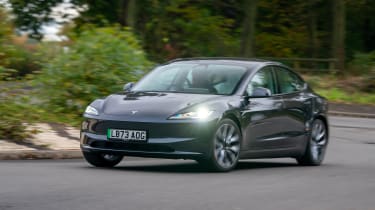
And it goes without saying that making the car, running the car and disposing of the car, needs to be close to carbon free to get the promised benefits to the environment.
The solution to this lies in the hands of the charge-point providers, and contrary to current rhetoric, the biggest responsibility is on mainly the low speed, long-dwell providers, rather than the high-speed chargers we find in service stations.
Let me explain.
The most expensive part of an EV is the battery - by far. Thankfully, battery costs are coming down, but the fundamental barrier to cheap batteries is size. Most we see on the market today are sized to combat the concept of range anxiety. In other words, can my EV take me to where I want to get to without leaving me stranded because the battery has run out of juice?
Yet the fact is we rarely need to do more than 50-100 miles per day. But the obsession of combatting range anxiety means we carry typically around 40 kWh of redundant battery cost and weight - that’s about £7k on the price of the car.
If we want a £20,000 electric vehicle, then we need to accept a battery size of around 24kWh rather than 60kWh. This won’t happen without solving range anxiety and that won’t happen without the prolific adoption of both slow and fast chargers available to everyone, everywhere.
But we also need to make the cost of charging these EVs incredibly cheap, so that life-time costs of an EV are a level of magnitude lower than the equivalent ICE, and this is possible through long-dwell charging and bi-directional “flex” of the charging stations.
Vehicle to grid as a route to lower charging costs
In the not-so-distant future, a significant number of “EV stations”, be they at home, work or curb-side, need to be available to support long-dwell charging, with each station comprising a charger, a battery and access to clean energy — solar panels, wind etc.
The consumer is incentivised to plug-in when parked, in return for low-cost energy. The car battery then trades energy to the grid when it’s expensive and charges the car when it's cheap and suits the driver’s need for a full battery, for example at 7am each morning.
The combination of bi-direction charging, a static storage battery and autonomous “free” solar energy allows the car to be charged very cheaply. I can already hear the “haters” saying we’ll damage the car battery, but I’ll dismiss that myth and tell you the opposite is true if the battery is not deeply cycled.
Of course, current UK Government legislation and myopia restricts all of this right now along with inward investment into growing an industry to capitalise on the opportunity. But should a future Government be open-minded to understand the technical opportunities of a green future and invest in them, then a day where an EV is cheaper to buy and cheaper to run than an ICE car really is just around the corner.
Want the latest car news in your inbox? Sign up to the free Auto Express email newsletter...



